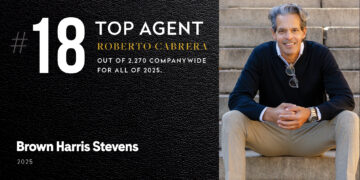
Abridged from an article by Holly Snaith for American Masters
This spring American Masters brings viewers an intimate look into the life of the legendary Liza Minnelli in the new documentary, LIZA: A Truly Terrific Absolutely True Story, now streaming. The film is part of New York City’s PBS station THIRTEEN’s special Broadway and Beyond festival, celebrating theater productions and the people who bring them to life.
Liza Minnelli grew up immersed in Hollywood and the world of filmmaking. The MGM backlot was her playground. There, her mother, Judy Garland, lit up the screen in musicals like “The Pirate” and “Summer Stock,” while her father, Vincente Minnelli, directed classics such as “An American in Paris” and “The Band Wagon.”
Witnessing her parents’ artistry firsthand ignited a passion that propelled Minnelli to achieve her own legendary status. With electrifying dance numbers, a powerful voice and a magnetic stage presence, she created a career that transcended her lineage. Let’s step into the spotlight and revisit some of Liza Minnelli’s most memorable roles.
- The Sterile Cuckoo (1969)
Minnelli’s breakout moment on the screen came in 1969 with her captivating performance in the comedy-drama “The Sterile Cuckoo.” Directed by Alan J. Pakula, who would later helm “All the President’s Men” and “Sophie’s Choice,” Minnelli played Pookie Adams, a quirky and self-absorbed college freshman who forms an unlikely romance with the shy and reserved Jerry Payne (played by Wendell Burton). Their relationship, filled with odd charm and clashing personalities, quickly became the film’s heart.
- Tell Me That You Love Me, Junie Moon (1970)
Following the success of “The Sterile Cuckoo,” Minnelli took on a bold and challenging role in the 1970 drama “Tell Me That You Love Me, Junie Moon,” directed by acclaimed filmmaker Otto Preminger. Based on the novel by Marjorie Kellogg, the film follows Junie Moon, a young woman left with severe facial scarring after her boyfriend douses her with battery acid.
While recovering in an institution, she befriends Arthur (Ken Howard), an epileptic, and Warren (Robert Moore), a gay paraplegic. Together, the three form a deep connection, helping one another navigate life’s hardships.
- Arthur (1981)
Minnelli made a memorable return to romantic comedy in “Arthur” (1981), written and directed by Steve Gordon. Starring alongside Dudley Moore, who played Arthur Bach, a charming but perpetually drunk New York City millionaire, Minnelli took on the role of Linda Marolla, a down-to-earth waitress from Queens who captures Arthur’s heart. Their love story is complicated by the fact that Arthur stands to lose his vast inheritance if he doesn’t marry the wealthy socialite his family has chosen for him.
- New York, New York (1977)
If Martin Scorsese’s “New York, New York” film is remembered for anything, it’s for introducing the world to the now-iconic theme song “New York, New York,” composed by John Kander with lyrics by Fred Ebb. While Frank Sinatra’s later rendition turned the song into an anthem, Sinatra always credited Minnelli for being the first to bring it to life.
- Cabaret (1972)
The defining film of Minnelli’s career is undoubtedly the 1972 musical “Cabaret.” Playing Sally Bowles was a lifelong dream for Minnelli and the film also marked her first collaboration with the legendary director and choreographer, Bob Fosse. Though already a seasoned dancer, working with Fosse refined her technique, instilling a new level of discipline and precision.
With music and lyrics by Minnelli’s longtime friends John Kander and Fred Ebb, “Cabaret” is set in Berlin during the rise of Adolf Hitler and the Nazi Party. The film, also starring Joel Grey and Michael York, was a massive critical and commercial success, winning eight Academy Awards, including Best Actress for Minnelli. Though already a star, “Cabaret” launched her into a new stratosphere of fame.
Read the full article on the American Masters website. Watch American Masters—LIZA: A Truly Terrific Absolutely True Story and explore so much more in THIRTEEN’s Broadway and Beyond collection at thirteen.org/broadway.









